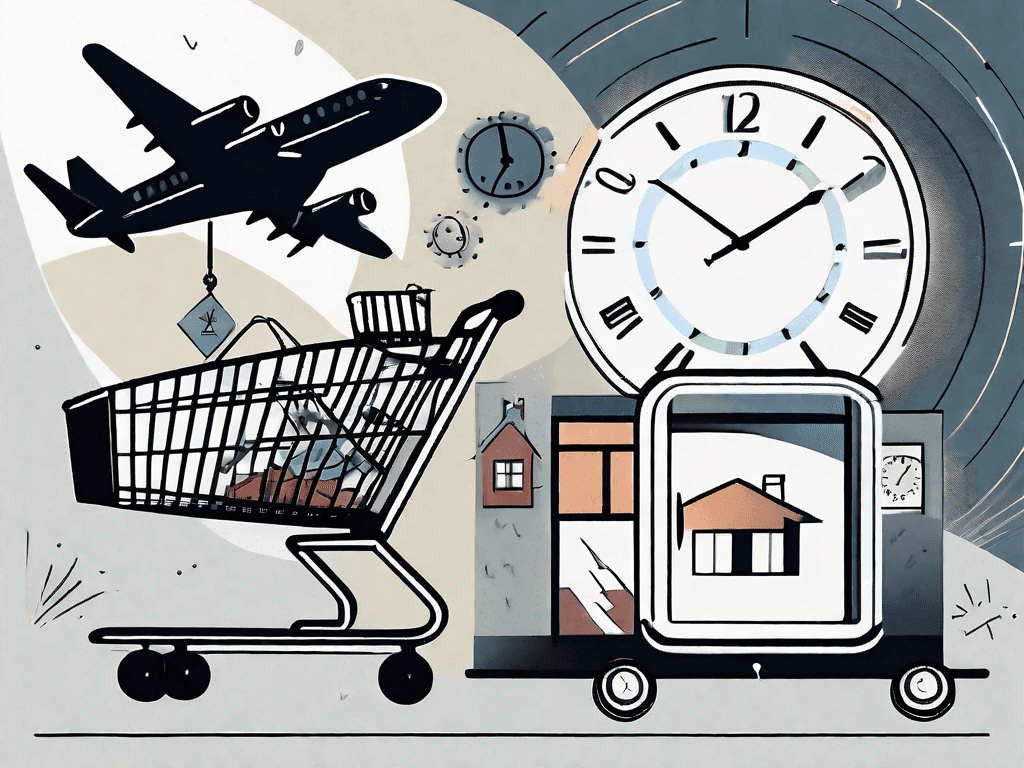
What is an Urgency Close? (Explained With Examples)
An urgency close is a persuasive technique commonly used in sales and marketing to create a sense of urgency and encourage immediate action from potential customers. By highlighting time-limited offers, limited availability, or impending price increases, the urgency close is designed to motivate individuals to make a decision quickly
What is an Urgency Close?
An urgency close refers to a specific method employed by salespeople to leverage the fear of missing out (FOMO) in order to persuade customers to take action immediately. It is based on the principle that people are more likely to make a purchase when they feel a sense of urgency or time pressure.
1°) What is an Urgency Close?
An urgency close is a technique used throughout the sales process to urge prospective buyers to act swiftly. By creating a sense of urgency, sales professionals aim to overcome customer hesitations and objections, ultimately increasing the chances of closing a deal.
1.1 - Definition of an Urgency Close
An urgency close involves employing time-sensitive incentives or offers to motivate potential customers to make a purchase decision without delay. This technique taps into the innate human desire to avoid missing out on valuable opportunities, prompting individuals to act promptly.
1.2 - Advantages of an Urgency Close
Utilizing an urgency close offers several advantages for salespeople. Firstly, it provides a clear call to action, eliminating any ambiguity and prompting customers to take the desired action. Additionally, it can create a sense of scarcity, making the product or service appear more desirable and valuable.
Moreover, an urgency close can help generate a sense of trust and credibility. By emphasizing time-limited offers, salespeople demonstrate their confidence in the quality and value of their offerings, which can enhance the customer's perception of the product or service.
1.3 - Disadvantages of an Urgency Close
While an urgency close can be an effective technique, it does have some potential drawbacks. If misused or overused, it can come across as manipulative, leading to a loss of trust and credibility. Customers may perceive the sense of urgency as a sales tactic rather than a genuine offer.
Furthermore, in some cases, an urgency close may pressure customers into making impulsive decisions. This can result in buyer's remorse if the customer later realizes they rushed into a purchase without fully considering their needs or alternatives.
2°) Examples of an Urgency Close
Now that we have explored the concept of an urgency close, let's delve into some real-life examples to better understand how this persuasive technique can be employed in various contexts.
2.1 - Example in a Startup Context
Imagine a startup company launching a limited edition product. By implementing an urgency close strategy, the startup could emphasize that there are only a limited number of units available, creating a sense of exclusivity and urging potential customers to purchase before the item sells out.
The startup could also offer an early-bird discount for a limited time, encouraging customers to take advantage of the lower price before it increases. This combination of limited availability and time-sensitive pricing adds an additional layer of urgency to the sales process.
2.2 - Example in a Consulting Context
In the consulting industry, urgency closes can be utilized to secure client engagements. A consultant might highlight a rapidly approaching deadline or a current market trend to emphasize the need for immediate action.
By positioning their services as a solution to a time-sensitive problem, consultants can create a sense of urgency and encourage potential clients to engage their services before it is too late. The urgency close helps clients recognize the importance of addressing their challenges promptly.
2.3 - Example in a Digital Marketing Agency Context
A digital marketing agency can leverage an urgency close when promoting its services to businesses seeking to improve their online presence. They could emphasize a limited-time offer for a comprehensive website audit or a discounted package for a specific duration.
By highlighting that the offer is available for a limited time, the agency can incentivize potential clients to take action promptly and capitalize on the opportunity to enhance their online visibility before their competitors do.
2.4 - Example with Analogies
Let's take a moment to consider an analogy that demonstrates the power of an urgency close. Imagine you are at a bookstore, and you stumble upon a sign that reads, "Limited Stock: 50% Off for the First 10 Customers!"
Chances are you would feel a sense of urgency to make a purchase, fearing that the discount might run out or the item may sell out. This analogy illustrates how an urgency close can motivate customers to take immediate action due to the fear of missing out on a great deal.
In conclusion, an urgency close is a persuasive technique that aims to create a sense of urgency and motivate potential customers to take immediate action. By leveraging time-sensitive incentives, limited availability, or impending price increases, salespeople can tap into the fear of missing out and increase the likelihood of securing a deal. However, it is crucial to use this technique ethically and avoid crossing the line into manipulative or deceptive tactics.











































































































































































































